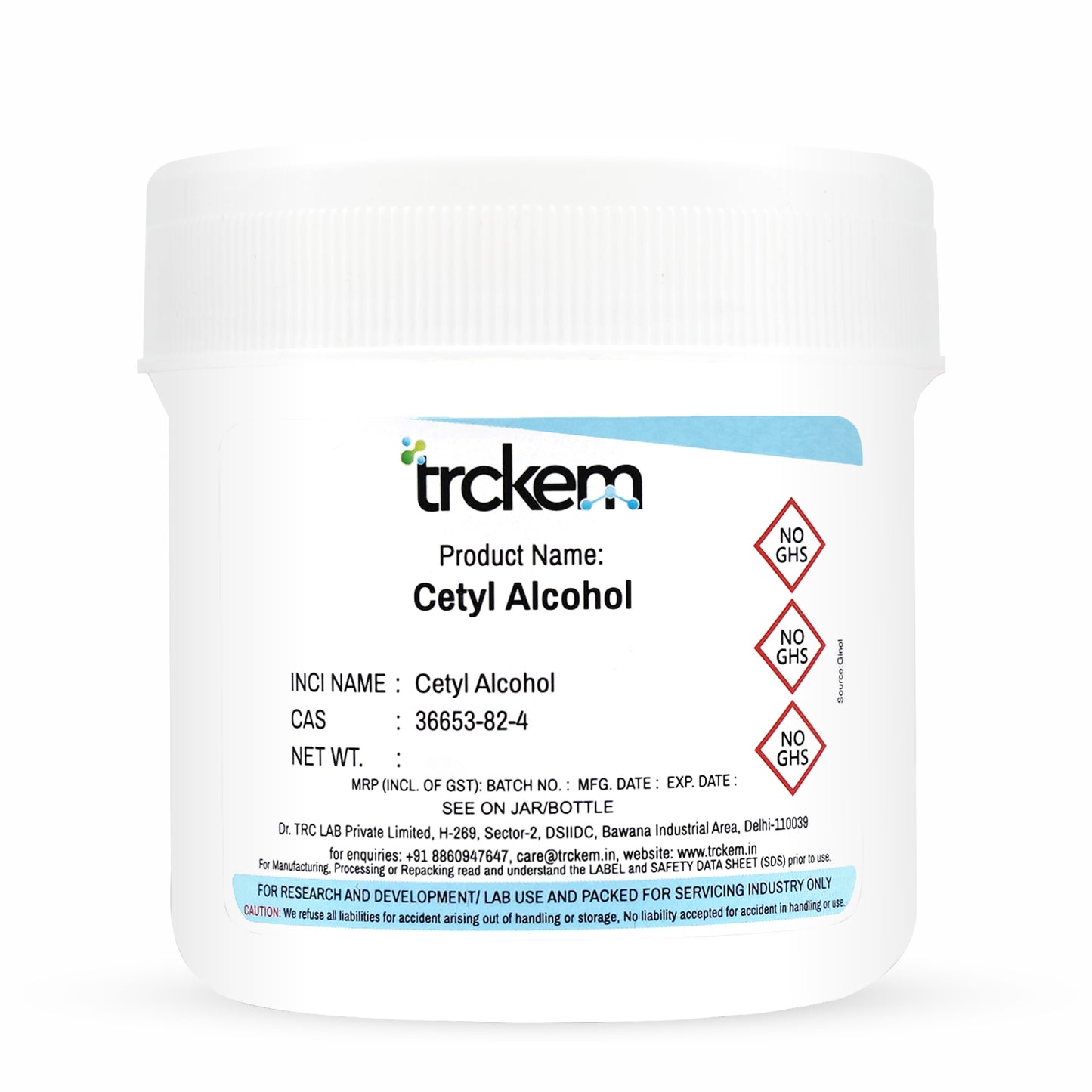
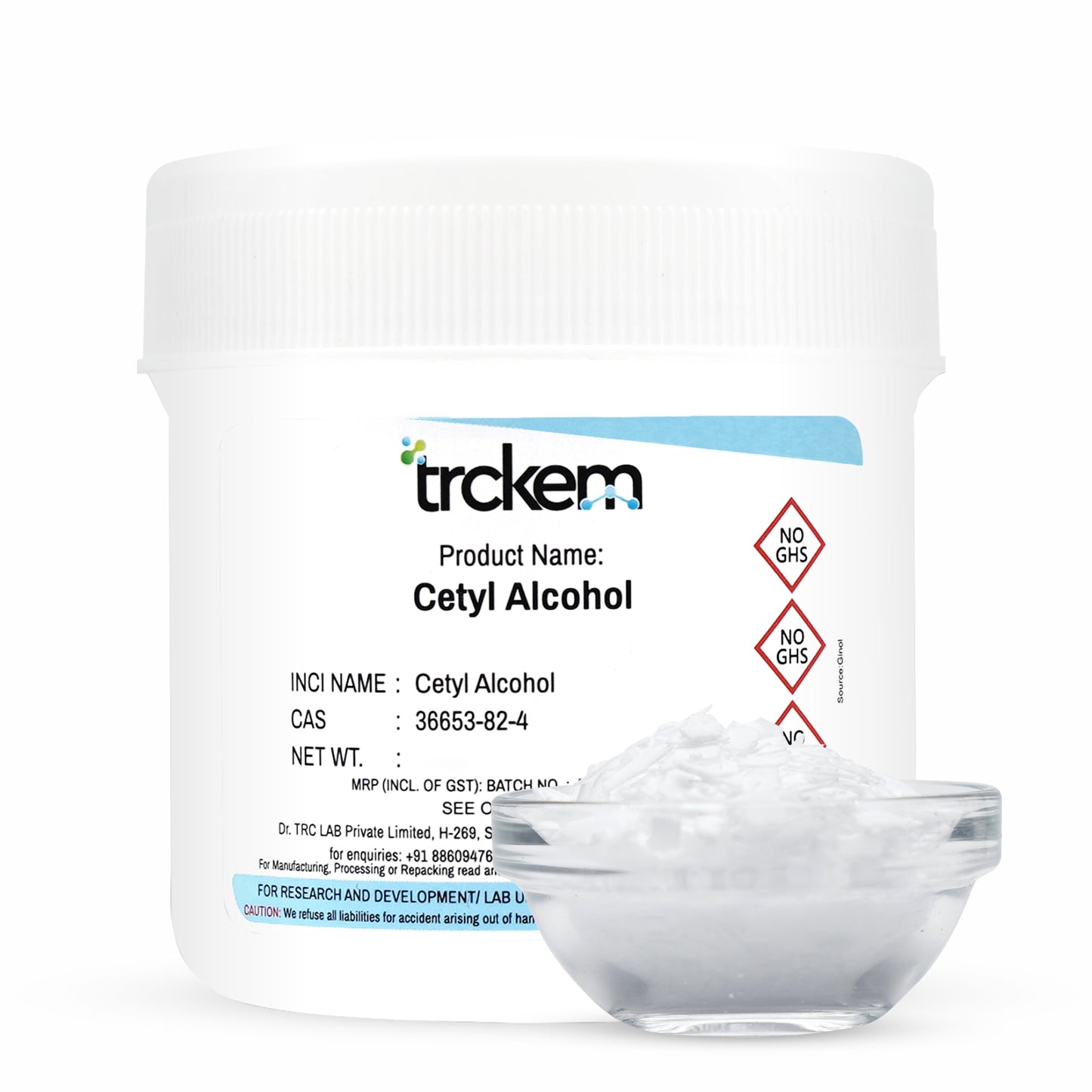
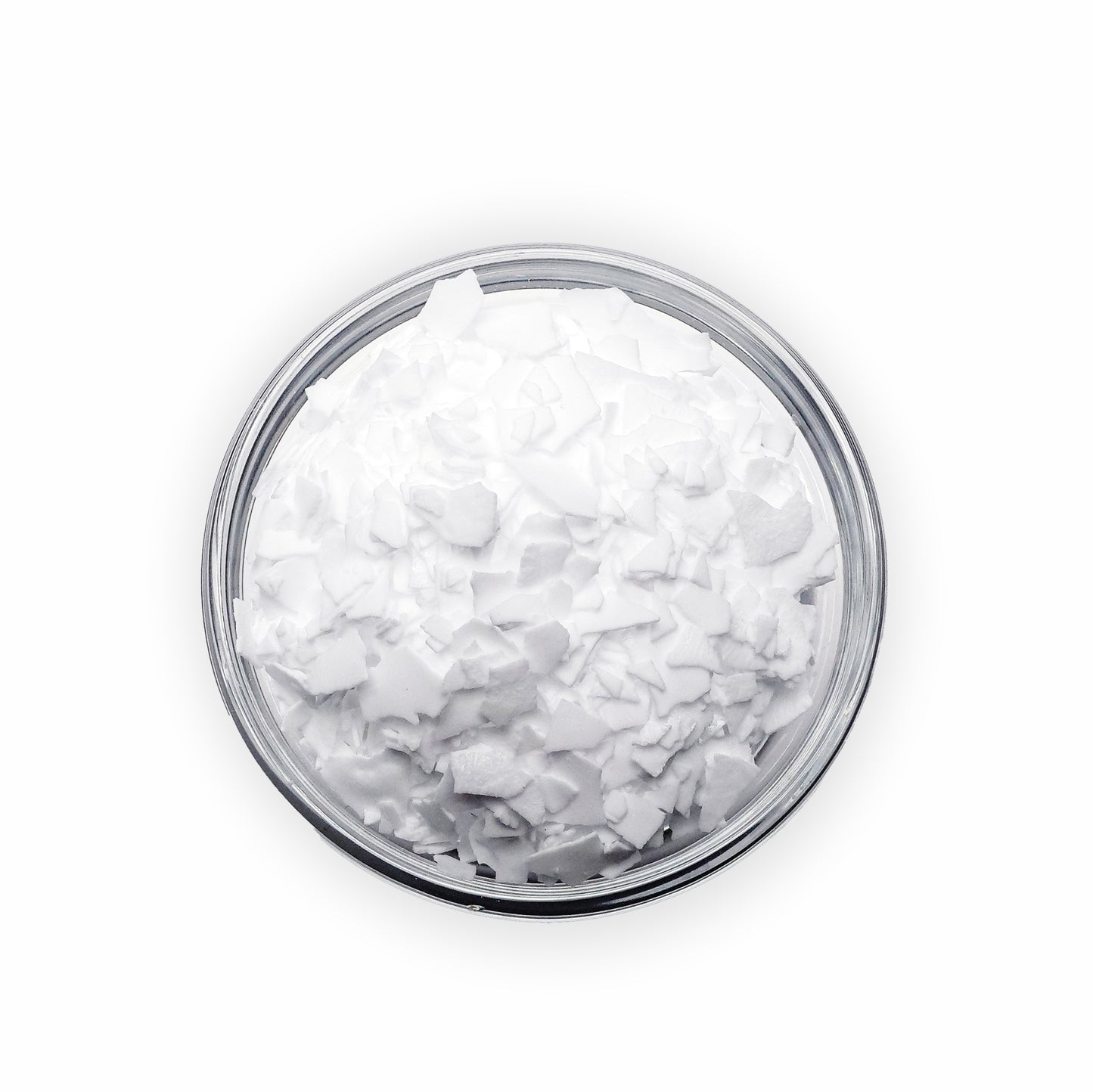
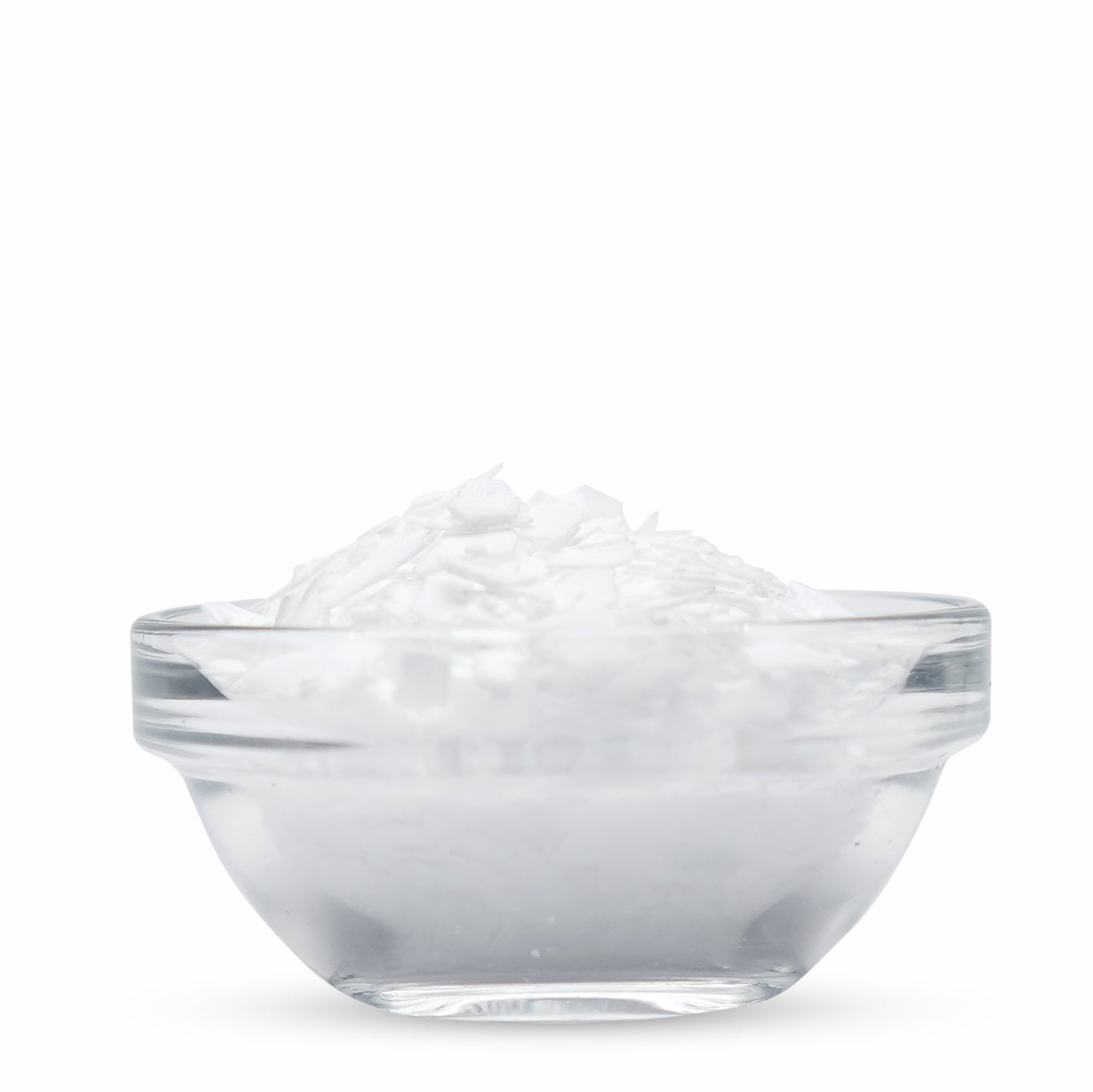
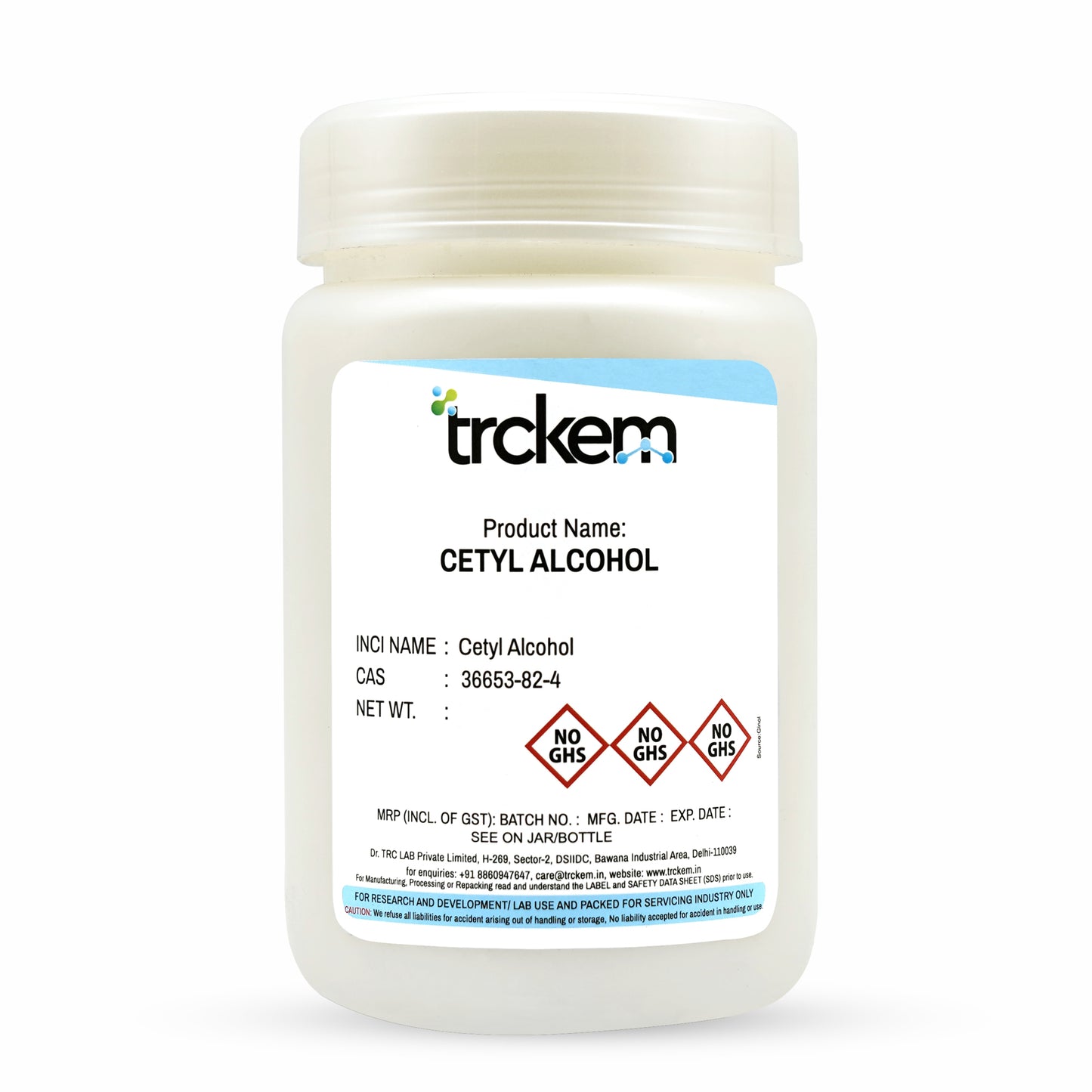
FAQ (Frequently Asked Questions)
1. What is Cetyl Alcohol?
Cetyl Alcohol is a long-chain fatty alcohol (a “fatty” waxy solid) used in many cosmetic and personal care formulations. It has a waxy texture, is solid at room temperature, and is used to improve texture, stability, consistency, and skin feel in creams, lotions, conditioners, and other products.
2. What are the CAS Number and INCI Name of Cetyl Alcohol?
CAS Number: 36653-82-4
INCI Name: Cetyl Alcohol
3. What are the benefits of using Cetyl Alcohol in personal care products?
Emollient: Softens and smooths the skin by forming a lightweight occlusive layer, helping to reduce moisture loss.
Thickening / Viscosity Control: Helps to increase thickness and richness of creams, lotions, conditioners, giving a more luxurious texture.
naturalbulksupplies.com
Emulsion Stabilization: Acts as a stabilizer/co-emulsifier to help prevent separation of oil and water phases.
Opacifier: Can make formulations less transparent; helps to improve visual appearance.
Improves Spreadability & Feel: Contributes to a smoother, more velvety skin feel; helps the product apply more evenly.
4. In what types of personal care products is Cetyl Alcohol commonly used?
Cetyl Alcohol is versatile and is used in many personal care product types, including:
- Skin care creams, lotions, body butters
- Hair care products like conditioners, hair masks, shampoos (especially for conditioning, thickening, smoothing)
- Lipsticks, balms, wax-based formulations
- Other emulsion products, including soaps, cleansers, and possibly some makeup formulations for texture/stability improvements.
5. What are typical usage levels of Cetyl Alcohol in formulations?
In lotions, creams, and emulsions: often 1-5 % to give body, thickness, and creamy texture.
In richer or more solid / waxy / balm-type or anhydrous formulations (e.g., body butters, solid bars) it may be used in higher amounts (sometimes up to ~30 %) depending on desired firmness.
6. Is Cetyl Alcohol safe for use in personal care products?
Yes. Cetyl Alcohol is widely used and generally considered safe. It is approved in many jurisdictions (FDA, EU, etc.) for cosmetic use. It is not the same as “drying” short-chain alcohols (like ethanol) and does not typically dry out skin.
7. Can Cetyl Alcohol cause skin or other irritation or sensitivities?
Most people tolerate it well. Because it is a fatty alcohol with long chain, it tends to be gentle and non-irritating.
However, as with any ingredient, those with very sensitive skin should patch test, especially if multiple fatty alcohols / waxes are present or if the source is not well refined.
Allergic reactions are rare.
8. Is Cetyl Alcohol environmentally friendly / of natural origin?
Cetyl Alcohol is often derived from natural sources such as vegetable oils (coconut, palm) rather than synthetic sources.
Its biodegradability is relatively good (being a fatty alcohol) compared to many synthetic long polymers.
Sustainability concerns: if derived from palm oil, sourcing from certified sustainable palm oil (e.g. RSPO) is important.
9. Are there alternatives to Cetyl Alcohol for similar functional roles?
Yes. Depending on what you're optimizing for (texture, emollience, viscosity), alternatives include:
Other fatty alcohols such as Stearyl Alcohol, Cetearyl Alcohol (a mix of cetyl + stearyl)
Natural waxes and butters (e.g. shea butter, cocoa butter) for emollience and structure
Vegetable esters, fatty acids and other thickening agents if wanting different sensory or natural-label claims.
10. How should Cetyl Alcohol be handled, stored, and formulated to get best results?
It is solid/waxy; melt it properly as part of the oil (lipophilic) phase when making emulsions or creams.
Temperature: its melting point is around 48-50 °C
Store in a cool, dry place, sealed to prevent contamination or moisture.
Ensure high purity (low presence of free fatty acids, low contaminants) for sensitive skin or high-end applications.
Blend well with emulsifiers, oils, but avoid overheating (which could degrade certain oils or additives).






